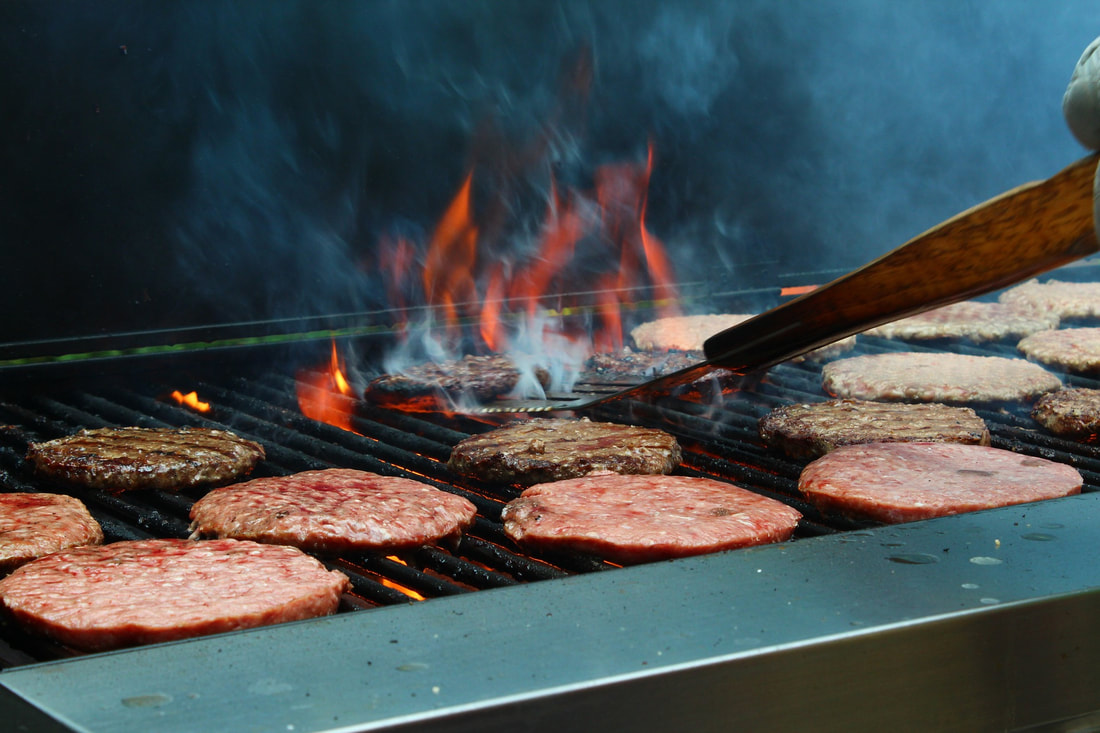|
NEW ORLEANS -- Eating grilled or barbecued meats too often, and cooking those meats too well done, could increase the risk of high blood pressure, according to new research.
Also read, More Than Half of Canadians Eat Meat Alternatives, New Research Finds. A study released Wednesday compared people who eat open-flame, high-temperature cooking more than 15 times a month with less than four times a month. The researchers’ work suggests a 17 percent increased risk for high blood pressure. “Our findings imply that avoiding [these] cooking methods, including grilling, barbecuing and broiling, may help reduce hypertension risk among individuals who consume red meat, chicken or fish regularly,” said Gang Liu, a research fellow in the nutrition department of Harvard University’s T.H. Chan School of Public Health. Liu presented the findings at the American Heart Association’s Epidemiology and Lifestyle conference in New Orleans. Despite this research, grill masters need not despair, said nutritionist Judith Wylie-Rosett. There are plenty of healthy, interesting alternatives to slathering on sugary barbecue sauces and cooking meat until it’s charred. “Moderation and common sense should prevail here,” said Wylie-Rosett, head of Health Promotion and Nutrition Research at Albert Einstein College of Medicine in New York. “There are lots of methods of doing outdoor cooking where you are steaming rather than using direct flame.” Liu has led previous studies drawing links between an increased risk of diabetes and high-heat cooking and well-done meat. His most recent study incorporated subjects from three different populations: 32,925 women from the Nurses’ Health Study from 1996 to 2012; 53,852 women from the Nurses’ Health Study II from 2001 to 2013; and 7,104 men from the Health Professionals Follow-Up Study from 1996 to 2012. The participants were all free of high blood pressure, diabetes, cardiovascular disease and cancer at the beginning of the research. Links between cooking temperature, method, doneness and high blood pressure were present independent of the amount or type of meat eaten, Liu said. While the research didn’t pin down why this happens, he said other studies suggest cooking meats at high temperatures can lead to the creation of several byproducts with complicated names and potentially harmful effects, including advanced glycation end products (AGEs), heterocyclic amines (HAAs) and polycyclic aromatic hydrocarbons (PAHs). These “are not only potential carcinogens, but also may induce oxidative stress, inflammation and insulin resistance in animal models,” he said. Oxidative stress is damage from a disturbance in the balance of the body’s cellular-level reactions as it processes or metabolizes oxygen. Insulin is produced by the pancreas and allows the body to use glucose, or blood sugar, for energy. Without it, the blood has a buildup of sugar and that can cause diabetes. All of those “pathways,” Liu said, also could lead to an increased risk of developing hypertension. SOURCE American Heart Association News
3 Comments
6/6/2018 09:06:25 am
Such an amazing post...thanks for sharing it with us so informative and worthy to read.
Reply
Leave a Reply. |
Advertisement
News & Updates
Stay informed with the latest news around foodservice, agriculture and other related food news. Advertisement Opportunities
|


 RSS Feed
RSS Feed


